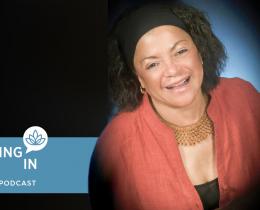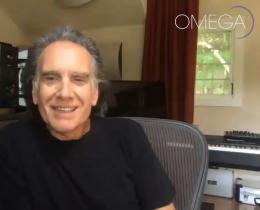Omega: We seem to have an uneasy relationship with the body in Western culture. We are especially averse to pain, discomfort and aging. How can we learn to be compassionate and more at home in the body regardless of our physical condition?
Tara:Through mindfulness practices, we can come to recognize that the experience in our body is a changing play of sensations and emotions, and what we are is the formless, timeless presence experiencing that aliveness. The form will keep changing, but the stillness and silence of who we really are doesn’t. That recognition allows us to cherish these bodies even as they’re constantly changing.
Omega: Can you talk about your own health and how practices of mindful compassion helped you understand this distinction between form and formlessness with regard to the body?
Tara: About 10 years ago I got pretty sick and was quite ill for about 8 years. While I’m much better now, through this time I had no reason to think I would get better. I lost a lot of my physical capacities and couldn’t do the things I’d always loved, like swim in the ocean and walk in the sand.
One day while on Cape Cod, my family and friends went off to the beach and I had to stay behind and face the grief of getting old, getting sick, and losing this aliveness that I cherished. There had been so much resistance and so much grasping—I wanted to be able to walk and I wanted to be able to swim, but I had to say, "Okay it's like this right now,” and let myself feel the grief.
In the midst of the grief I said the deepest prayer I could feel, which was, “May I love this life no matter what.” And to me that meant, “May I take refuge in the formless, timeless, loving presence that can cherish this coming-going life.” I wasn't denying that this life is here, just that there's something that we are that's larger than this temporary expression.
Omega: Can this same idea be applied to our relationship with the environment? Can we grieve for the changes that are happening but realize the timeless nature of the universe will endure?
Tara:Yes, but we have to be aware of the two shadow sides of this. One keeps us in a place of grieving, locked in a struggle where we are on the losing end. The other is to see it all as a timeless presence that is coming and going and will take care of itself. As we mature we realize we are that same timeless presence, so we naturally love and care for this world and do whatever we can. It becomes a privilege to serve this life as best as we are able, being fully engaged in giving and receiving. Beyond that, we just have to let go and let things happen as they happen.
Omega: How might this idea apply to our relationships with people?
Tara: In the same way I hit bottom with my health, we all experience something in our relationships that is outside of our control and shakes the ground underneath us, like a divorce, a difficult relationship with a sibling or parent, or concerns for our children. We want to respond in a way that is healing and wise, but first we can look at the ways we take false refuges—the unconscious strategies we use to try to control and avoid things, like staying busy, blaming, or interfering. We think these things will make it better but they actually pull us away from our present moment experience.
We can find true refuge by learning how to open to the experience of this out-of-control world in an embodied way. This means having the courage to contact the hurt, the shame, the loneliness, the grief. I teach a lot about how to find the “felt sense” and open to these deep experiences of wounding and pain with tremendous self-compassion.
Omega: Why is self-compassion so important?
Tara: Self-compassion means that we feel a genuine tender care toward our being no matter what we’re experiencing. If we’re feeling betrayed or abandoned in a relationship, or gripped with anxiety over the well-being of someone we cherish, we can be open to feeling all of that in our body right now. By opening to our own vulnerability, we have the capacity to stay present with others, holding their experience with genuine compassion. Even if we wish things were different or that a situation would go away, we can include that feeling too with compassion, be mindful of that, too. Our vulnerability is part of our humanity, and the more we open to it, the more we realize our belonging to the web of life.



